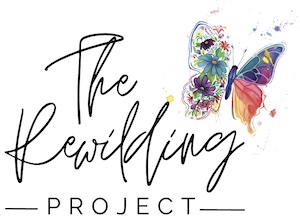What if you actually are being dramatic?
Have you ever noticed that when you’re not getting the results you want in life, there is often a serious amount of drama happening at the same time?
You’re upset, over thinking, over analyzing, strategizing, feeling resentful, etc…
And it often seems to be the case that it’s “their” fault, as in “my partner is not behaving the way I think they should, and if they were only doing ‘X’ instead, then everything would be fine! Seriously!”
If they’d just…
- Listen to me
- Stop nagging so much
- Be more serious about things
- Lighten up a little and have some fun
- Put their dishes in the sink everything would be fine
…Etc. Etc. Etc.
Now before you can effectively answer that earlier question about drama, you need to have a clear understanding of what drama means in this context. Technically drama is defined as: “(4)Any situation or series of events having vivid, emotional, or conflicting results.”
That definition doesn’t really help with this conversation so let me explain a little further.
In this case, drama is anything that’s done in an attempt to get something or cause a response/reaction.
This definition of drama might look like:
- Doing something to get attention
- Avoiding conflict to keep the peace
- Attempting to get sympathy/sympathetic response
- Blaming or projecting in order to avoid responsibility
- Manipulating people or circumstances to get your way
- Making a point (being righteous) to get them to shut-up
- Saving or rescuing someone so they’ll like or appreciate you
Does any of that sound familiar? It’s funny the things we do when we don’t feel comfortable just asking for what we need…
It’s unfortunate, but most of us learned that behaviors like those are better or easier than just being honest. This tendency usually comes from the deep-rooted fear that if we ask for what we wanted, we’ll get rejected.
Opening up and being vulnerable like that often feels counterintuitive. From the outside it seems like it wouldn’t be a big deal, but when the time comes to actually lay it on the line, everything in us usually screams “Nooooooo!”
The trouble is, if you never ask for what you want or need, it’s likely you’ll never get it…
You may be thinking to yourself, “I have clearly asked for what I want. I have asked them repeatedly to stop leaving their dishes on the counter and they keep doing it! How much clearer can I be?”
I’m sure that’s true, that in your mind you have made your request 100% clear. But consider, that your reaction to the dishes on the counter is actually representative of something deeper for you.
It’s quite possible that you actually want to feel:
- Respected and leaving the dishes on the counter feels disrespectful
- Valued and the dishes left out points to how you feel taken for granted
- Partnered by your partner and that you’re not the only one responsible for dealing with (in this case) the dishes
The dishes in the sink can be a symptom of something else and it’s important that you’re having conversations about that. Getting to the root or source of the problem and dealing with that rather than just arguing, nagging, or being passive-aggressive about the dishes in the sink will significantly cut down on the drama.
Talking about these issues will likely feel vulnerable – and that’s okay.
It’s a reality that when we open ourselves up by making a request (that could get turned down), we feel like we’re risking being rejected by our partner.
In an effort to avoid that potential rejection, instead we focus on the surface issue of the dishes to try to get that deeper need met. That’s where the unnecessary drama comes from.
Because the truth is, if you’re with a person who genuinely cares about you, they’ll want to know:
- What’s really going on for you
- Where you don’t feel supported or cared for
- How they can adjust their behaviour to support you
Just like you’d do for them!
Long-term relationship satisfaction requires that partners to listen to each other – even to what’s not being said.
One of the key secrets to long-term happy and satisfying relationships is for partners to listen to each other; really get to know the inner-workings of each other. Listening will promote opportunities for real compromise and have everyone feel like they’ve come away (at least partially) winning.
A word of caution, avoiding these deeper conversations will likely result in the end of your relationship in the long run. When couples have unresolved problems that are representative of deeper issues, the bickering, arguing, and fighting will continue.
That pattern will lead you to the dangerous cycle of criticism and defensiveness, which is the death knell of relationships.
When criticism and defensiveness start to show up as a regular pattern in your relationship, inevitably the positive feelings you have toward one another will start to be overpowered by more negative feelings.
Recovering from that cycle is really challenging. Nipping this pattern in the bud is critical in keeping long-term satisfaction and love alive.
Learning to be patient with each other while you learn to have these deeper conversations is important. Especially if you’ve got a lot of drama because you’ve been focused on the surface issues for any length of time.
Look for the red flags.
If you’re one of the many couples out there that’s been focused on the surface issues for a while, and negativity is starting to crowd out the connection and positive sentiment for each other, that is a red flag.
Some of the red flag behaviours may look like:
- Visual or verbal cues that indicate disdain, righteousness, contempt, or disgust like eye-rolling or exasperated sighing.
- Diminishing statements intended to shut the conversation down like “whatever” or “I’m fine”.
- Wanting to hide out and avoid conversation with your partner because it’ll turn into some kind of fight.
- Lack of interest in spending time together alone; if one or both of you is avoiding that by either being too busy for date night or always including the children, friends, or family, that’s a sign you need to do something.
- One partner constantly raising a complaint (that turns into criticism) that is never effectively addressed and put to bed (i.e. the behaviour continues to happen). It’s important to note that if one partner is raising a concern, there is some validity to it and it needs to be looked at. Ignoring these issues over time will lead you to the gridlocked conflict cycle faster than just about anything else.
- Comments from one partner to the other about a noticed change in behaviour. If you used to do something a particular way (make dinner reservations for date night) and it’s noticed by the other person that it’s not happening anymore, that’s a likely sign the relationship connection is sliding.
If you begin to notice any of these behaviours, it’s time you consider taking action. If these patterns are left alone to fester they will become ingrained in the relationship dynamic and they’re nearly impossible to recover from.







